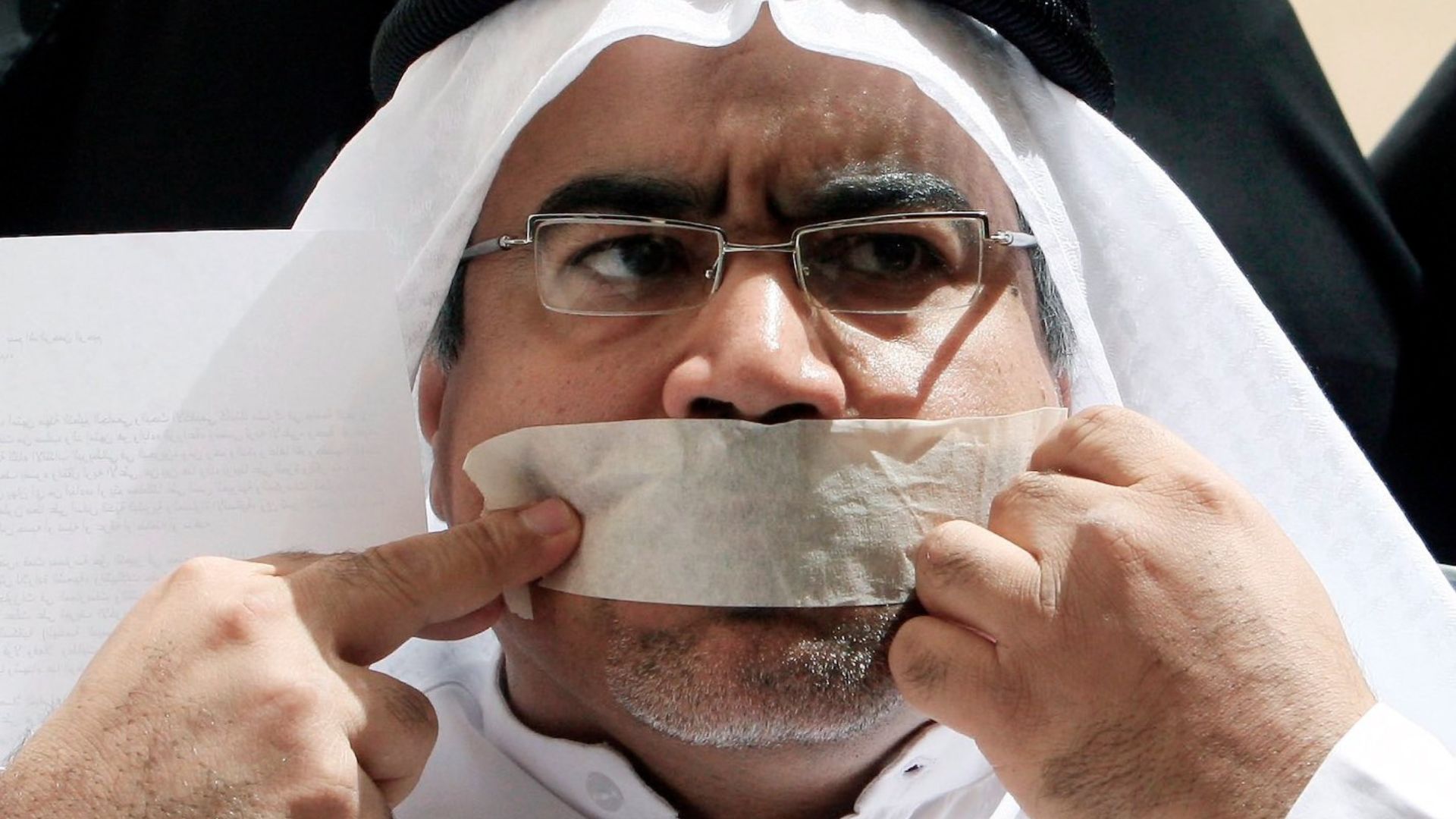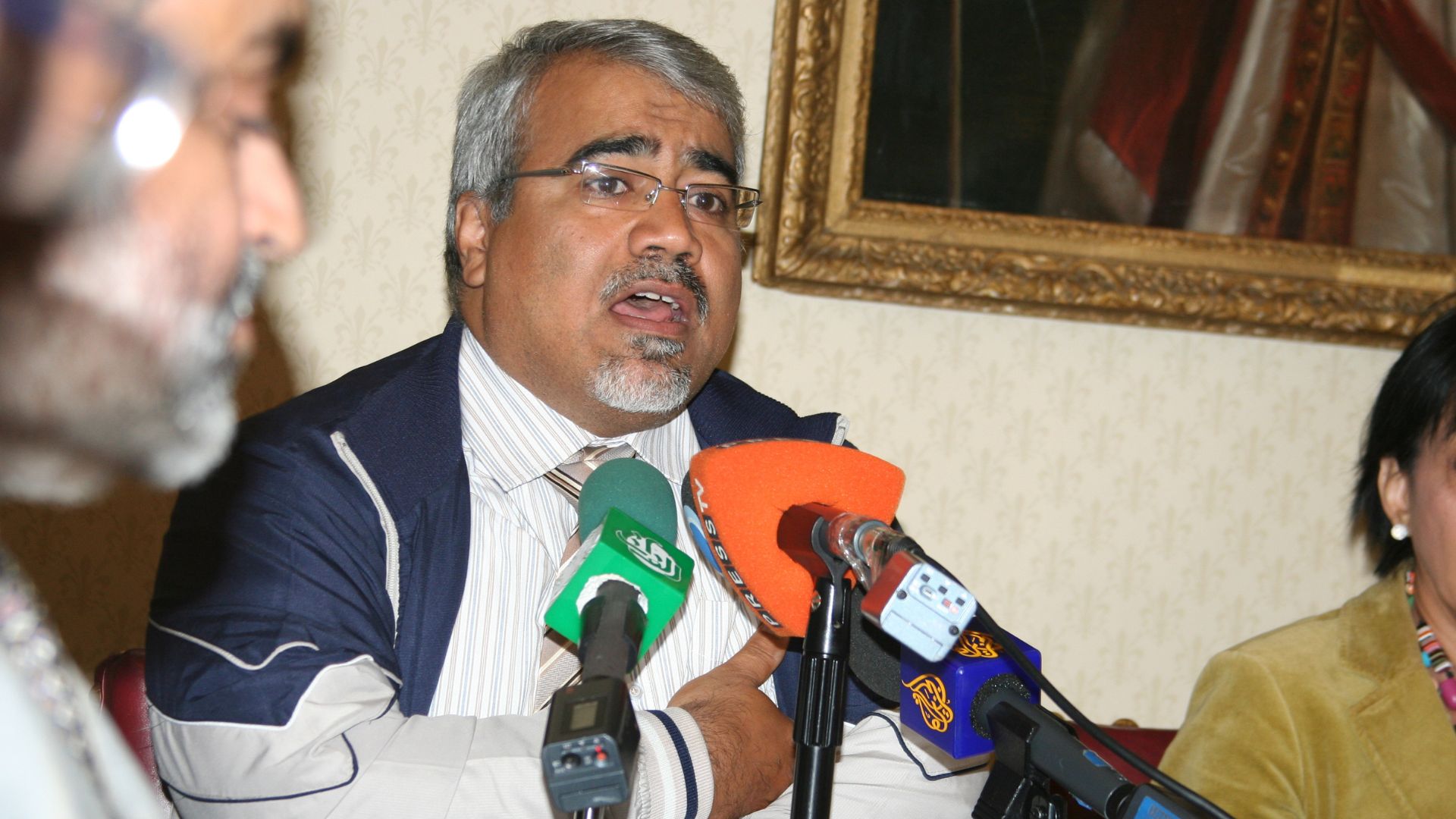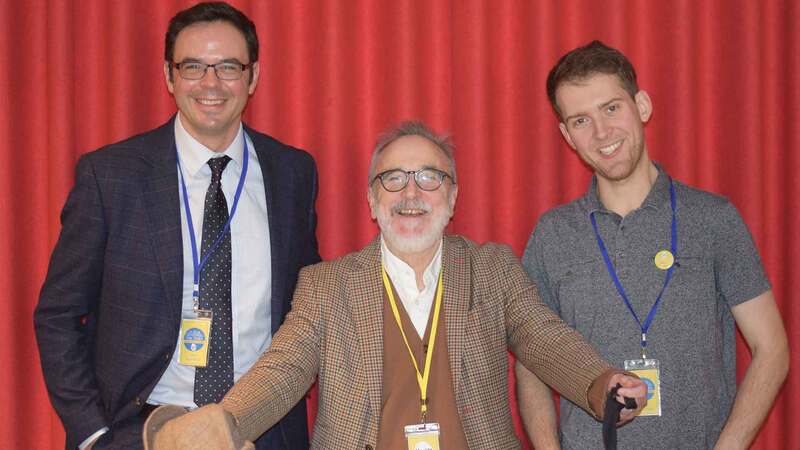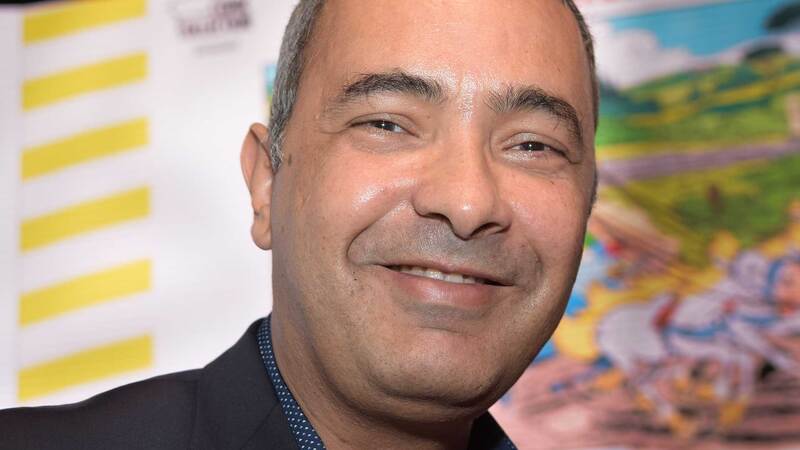You are viewing your 1 free article this month. Login to read more articles.
Bahraini academic and activist Dr Al-Singace named International Writer of Courage
Bahraini academic, activist and blogger Dr Abduljalil Al-Singace, who has spent more than a decade in prison where he is serving a life-sentence for his role in the 2011 pro-democracy protests, has been named the International Writer of Courage at the PEN Pinter Prize ceremony.
The award is given to someone who has been persecuted for speaking out about their beliefs and is announced by the winner of the PEN Pinter Prize. This year’s winner, Malorie Blackman, made the announcement at a ceremony at the British Library on 10th October.
The award was accepted on Dr Al-Singace’s behalf by Sayed Ahmed Alwadaei, director of advocacy at Bahrain Institute for Rights & Democracy (BIRD), who made a moving speech to guests delivered in Arabic and in English.
Blackman said: “When I first heard of the plight of Dr Al-Singace – engineer, blogger and activist, I was immediately struck by his commitment regarding effecting change in his homeland, including by highlighting the methods used to supress freedom of expression. He has been incarcerated for over a decade and has been on hunger strike and without solid food for over 400 days, which shines a spotlight on an immensely brave man who defines the word courage.”
Prior to his detention, Al-Singace taught engineering at the University of Bahrain, where he was the head of the mechanical engineering department before being removed from the position in 2009 following a trip to Geneva. He holds a PhD in impact mechanics from the University of Manchester Institute of Science & Technology, now the University of Manchester. He also authored his own blog "Al-Faseelah". According to colleagues at the Bahrain Centre for Human Rights, the website was blocked by the Bahraini authorities in 2009.
In the summer of 2010, Al-Singace visited the UK to attend a seminar at the House of Lords where he described the deteriorating human rights situation in his native Bahrain, speaking at length about the “triad of suppression”. He said: “[There are] three pillars ensuring that activists and NGOs who work on exposing violations are seized and [condemned] somehow, ensuring that they are suppressed. The first is the use of force, torture and ill-treatment. [The] second is the use of the law. And [the] third is the judicial apparatus and procedures.”
On returning home to Bahrain with his family, Al-Singace was arrested at Bahrain International Airport. The official Bahrain News Agency reported that an unnamed security official claimed the arrest was in light of concerns that Al-Singace could “damage the country’s stability” and that he had “abused the freedom of opinion and expression prevailing in the kingdom”.
Al-Singace was held incommunicado and in solitary confinement for six months, during which he was reportedly ill-treated: reports suggest that security officials subjected him to torture and ill-treatment, including verbal and sexual assault and beatings. A fellow activist has described how distressing it is to revisit footage from the seminar years later, knowing that Al-Singace has since been subjected to many of the forms of torture he described at the House of Lords.
Dr Al-Singace and others on trial with him were freed in February 2011 following widespread calls for political reform and the release of political prisoners. However, he was re-arrested shortly afterwards, on 16th March 2011, after publicising the deteriorating human rights situation in the country, and was later placed under house arrest.
On 22nd June 2011, Dr Al-Singace was among 21 opposition activists to be convicted by a special military court following the wave of protests which had swept the country in February and March that year, and in September 2011 the military-run National Safety Court of Appeal confirmed the conviction.
On 30th April 2012 the Court of Cassation ordered a retrial in the case. Dr Al-Singace was sentenced to life imprisonment, a decision confirmed by the High Court of Appeals in the Bahrain Court on 4th September 2012.
In the decade since, the international community, including the UN Special Rapporteur on Human Rights Defenders and leading human rights organisations, has continually raised his case and called for his immediate and unconditional release.
Dr Al-Singace relies on a wheelchair for mobility. He also suffers from post-polio syndrome, and heart, eye and sinus problems. Despite this, prison authorities have frequently denied Dr Al-Singace the specialist medical treatment he requires, often citing his refusal to wear a prison uniform as the reason he cannot attend appointments outside the prison compound. Previously, Dr Al-Singace had also been denied access to books, television, radio and even pen and paper.
Dr Al-Singace has gone on hunger strike on numerous occasions during his time in detention. In July 2021, he launched his latest hunger strike in order to protest his ill-treatment in prison and the confiscation of a manuscript he had been working on for several years.
After more than a year of refusing solid food, PEN said it is “seriously concerned” for his health and wellbeing and continues to call for his immediate release. Meanwhile, they continue to work closely with his family and colleagues to call for an improvement to his prison conditions, in particular the return of his manuscript to his family, and are highlighting his case through their international letter-writing campaign PENWrites.





















